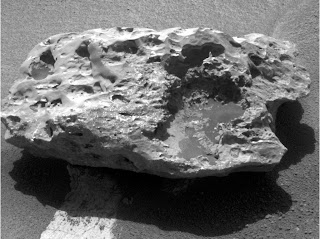.
I recently came across a gem in my music collection, a little treasure that I didn't even know I had. Here is a sample:
That is the overture to
Russlan & Ludmila, an
opera by
Mikhail Glinka. It's not the most inspired piece in the repertoire, but it is fun to listen to, as many overtures are.
So, why didn't I know that I had this piece? Because it is an extra on a CD that I bought a long time ago, a disk that was made to showcase another, grander work that I decided I didn't care for enough to even finish listening to the rest of the CD.
Allow me to explain:
Many years back I discovered a piece by Sergei Prokofiev called
Alexander Nevsky. This work is a cantata put together by Prokofiev and based on music he composed for
a 1938 Russian film of the same name. I’ve never seen the movie, but the cantata is breathtaking. After hearing some of the music on a sampler, I went out and bought this CD featuring the Montreal Symphony performing under the direction of Charles Dutoit.

I thoroughly enjoyed it at the time, and I still do.
But I needed another recording. You see, I have a habit of buying at least one other recording of a piece I enjoy very much just to get a different interpretation of it. Different conductors, performers, and orchestrations imbue new character to familiar pieces, and I feel I get to know a work better by hearing it in a new version. So I bought this CD, which is Fritz Reiner’s take on
Alexander Nevsky using the Chicago Symphony.

And I was sorely disappointed.
For one main reason: the lyrics were in English!
My concern may be nit-picky, but the work is about a Russian figure, and it was written by
a Russian composer, and my first exposures to it featured Russian lyrics. To me,
Alexander Nevsky should be sung in Russian, and I found it oddly unsettling to hear the lyrics in a language I understood! It’s weird, but I was totally turned off to Reiner’s version, and I put aside the CD in a fit of pique and forgot about it.
But, in doing so, I missed out on the Glinka overture!
See, in the world of classical music recordings, albums that feature longer, broader works are often rounded out with a “bonus” work, a short piece that is somewhat in the same character and really just functions as filler for the end of the recording. These are often overtures for ballets or operas, and that’s what RCA Victor chose to put at the end of the Reiner recording. But, since I had never listened to the whole CD all the way through, I never actually heard the piece.
Until this past weekend.
I came across this CD again while going through my collection, and for some reason I decided to listen to the whole thing. To my surprise, the English lyrics didn’t bother me as much as they used to, and I found myself liking this version just as much as the original CD I bought. But even more pleasing than that is I got all the way through to the last track and listened to the
Russlan and Ludmila overture for the first time. And I was happy to hear it.
I didn’t write this long post to say how great the Glinka piece is. It’s fun, but it’s not spectacular. No, I wrote this to remind myself that I need to pay a little more attention to things and to not write off the whole for one bad bit. You never know what gems you will find that way.







